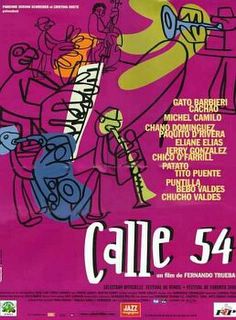¡Cubanissmo!
ArtsJournal posts a link to this Village Voice article about rejected visas for Cuban musicians. This saddens me. I had been hoping that the success of Buena Vista Social Club and subsequent U.S.-Cuban musical collaborations might signal the beginning of a real attempt to erode the U.S. embargo.
I have long been in favor lifting the embargo, believing that the best thing that could happen to Cuba is an influx of tourists, visiting exiles and information. A flood of information will do more to undermine the Castro regime than the corresponding income of U.S. dollars would prop it up.
Unfortunately, the will of the Cuban Exile community has gained serious political leverage during my lifetime and they’re not about to let anything like that happen. They are now a solid cadre in America’s reigning neo-con dynasty. Not only will the Bush family accede to their proposals re: U.S.-Cuban relations, but the Bushes are better served by keeping Fidel in power and the exiles rabid and focused north of the Florida Straits.
(On the Castro front: In 2001, his doctors said he could live to be 140, despite the wishful-thinking roster of diseases he has been given over the years - heart disease, gout, and various cancers, especially prostate - and assassination attempts.)


Speaking of Buena Vista, on its heels Spanish filmmaker Fernando Trueba put together Calle 54 – a tribute to Latin jazz (as opposed to the older Cuban song styles of BVSC). Calle 54 is more about the Latin diaspora than the pickled nostalgia Ry Cooder discovered in late 90s Cuba. Trueba pointedly films musicians during winter in frigid and desolate locations (Stockholm, upstate NY, the barrios) that contrast sharply with the tropical heat of the music.
The brief musician profiles are program notes, infusions of context for the filmed performances that are the meat of the movie. The performances take place in vividly lit studios, with multiple camera angles, well-engineered sound, and a kick-ass roster that includes Chucho Valdés, Paquito d’Rivera, Tito Puente (one of his last appearances), and Cachao. There are no cuts, voiceovers, or other interference with the musical numbers, which was one of my biggest complaints with BVSC. Trueba is so in love with this music that he wants you to enjoy it unadulterated. His presentation is almost fetishist in its clean lines and close-ups; the way the camera lingers on attractive Brazilian pianist Eliane Elias is obvious enough, but Trueba is just as intent on focusing on Tito Puente's toungue and the yellow-toothed glee of Michel Camilo. His joy is infectious and the film is great.



0 Comments:
Post a Comment
<< Home